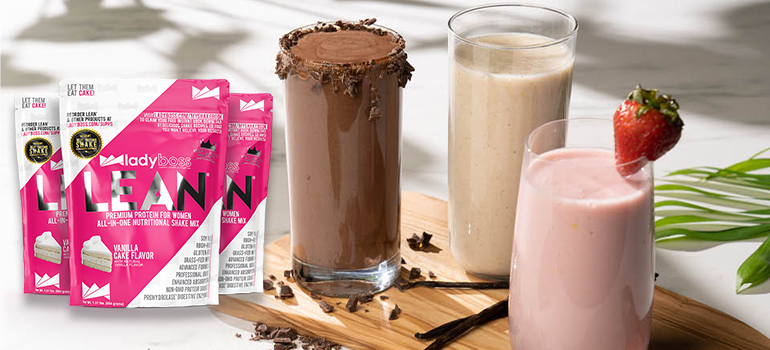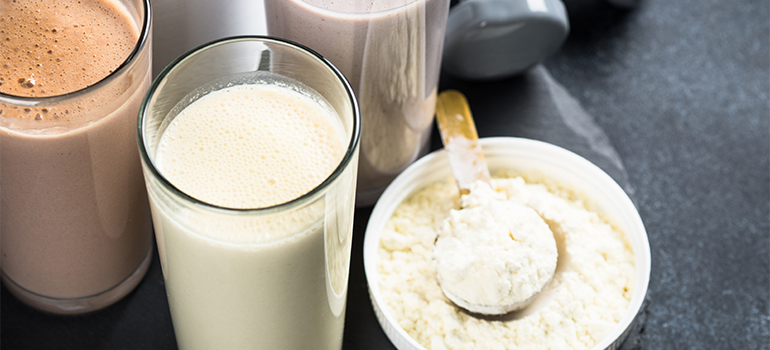Here is our list of ten foods we feel are worthy of the title “superfood.”
So, what is a superfood exactly?
Technically, there is no such thing as a superfood. The term “superfood” is a marketing tool created to influence trends. Basically, it was the food industry’s way of trying to get all of us to eat our fruits and vegetables.
The label of superfood is bestowed upon any food that is nutrient-dense and carries potential health benefits.
While there is no single food out there that is the key to ultimate health, the superfood label was on to something. A lot of fresh fruits and vegetables offer a plethora of nutrients that our diets commonly lack.
That’s why we have compiled this list of the top ten foods we would consider “super” on account of what they have to offer in the way of health benefits.
Suffice to say that all of us could probably benefit from adding these ten superfoods to our regular diet. Now, let’s find out why.
1. Kale

King Kale is how we like to refer to this green superfood. The buzz around kale has been strong for many years and shows no sign of slowing down, and for a good reason.
For starters, in a single serving (1 cup), kale provides:
- Vitamin K: 684% of the recommended Daily Value (DV)
- Vitamin A: 206% DV
- Vitamin C: 134% DV
- Vitamin B6: 9% DV
- Copper: 10% DV
- Potassium: 9% DV
- Manganese: 26% DV
- Calcium: 9% DV
In terms of health benefits, kale is nothing short of a superstar. Kale can help lower cholesterol, which can prevent heart disease. It is high in the powerful nutrients lutein and zeaxanthin, which are vital for healthy eyes.
Kale can also help you lose weight. Because of its low caloric content but high water content, kale has a low energy density. Eating foods that are low in energy density has been shown to help aid in weight loss.
But the real superpower of kale is the cancer-fighting compounds it contains. The first of these is sulforaphane, which has been shown to battle the formation of cancer cells. Another is indole-3-carbinol, which also helps prevent the development of cancer cells within the body.
Now maybe you understand why we call it King Kale.
2. Spinach

Speaking of mighty leafy greens, that brings us to our next superfood, spinach.
Spinach is nutrient-dense, antioxidant-loaded, and extremely versatile in ways to add it to your diet. Because unlike some other leafy greens, spinach retains its nutrients both raw and cooked.
In terms of nutrients, spinach packs a punch with an impressive profile that includes,
- Vitamin A
- Vitamin B6
- Vitamin K
- Vitamin E
- Folic Acid
- Iron
- Calcium
- Potassium
- Magnesium
- Manganese
- Copper
Spinach earns its place among the superfood category due to its wide-ranging health benefits.
Like kale, spinach is also rich in lutein and zeaxanthin which are essential to eye health; helping protect our eyes from the damaging effects of sunlight.
Spinach also contains the two compounds, MGDG and SQDG, which can help inhibit cancer cell growth. It is also loaded with the antioxidant carotenoid, which helps battle against the growth and development of cancer cells by removing free radicals from the body.
Another health bonus is that spinach contains high amounts of nitrates. Nitrates have been shown to help moderate blood pressure levels, which reduces the risk of developing heart disease.
So next time you whip up a salad, add some spinach with the knowledge that you’re doing something super for your health and well-being.
3. Berries

Berries are a long-established powerhouse thanks to their high levels of antioxidants and low sugar content. Some even consider berries to be the healthiest food you can find on earth.
The most common berries that pack a nutrient-dense punch include,
- Blueberries
- Strawberries
- Raspberries
- Blackberries
- Cranberries
These berries have been proven effective in preventing the risk of heart disease by helping reduce cholesterol levels. On account of their high levels of antioxidants, berries are a known cancer fighter. In fact, one study found that berries can help prevent cancer growth within the esophagus, colon, mouth, and breast specifically.
Studies have also shown that berries can help protect artery walls against high blood pressure levels. They also offer anti-diabetic properties by helping increase insulin sensitivity.
Eating berries is also great for our skin! They are high in an antioxidant called ellagic acid. Ellagic acid helps protect the skin from sun damage by preventing the breakdown of collagen when our skin is overexposed to the sun.
And when it comes to adding berries to your diet, they are incredibly versatile. You can eat them raw, mix them into smoothies, top your oatmeal with them, or toss them into a fruit bowl of other fresh, healthy fruit.
Adding berries to your daily diet is an easy and very delicious way to improve your overall health!
4. Eggs

It might seem odd to find eggs on a list of superfoods since they have easily been one of the most debated foods in the last forty years. As it turns out, eggs aren’t the bad guys, as was believed for so long.
First, let’s tackle cholesterol, which is what caused all the controversy around eggs. For a long time, some believed that eggs raised our levels of unhealthy cholesterol. On the contrary, eggs can improve cholesterol and increase insulin resistance.
Furthermore, eggs are loaded with essential vitamins and minerals and lesser-known nutrients such as choline. Choline is often grouped with B-complex vitamins and is a crucial nutrient for the brain. One large egg contains around 113 mg of choline.
If weight loss is your goal, then eating eggs for breakfast can help you lose weight. Eggs score high on a scale known as the satiety index, which measures a food’s ability to leave us feeling fuller for longer. In a study of overweight women, one group ate eggs for breakfast while the other ate bagels, but both consumed the same amount of calories. The women in the egg-eating group felt fuller for longer and ate fewer calories throughout the day, resulting in long term weight loss.
Another win for eggs is that they are relatively cheap and offer various options for preparing them. Aside from breakfast, you can also boil them and have an easy on the go protein-packed snack. Or toss a boiled egg on a salad. The options are limitless.
But the point is, eggs are indeed worthy of being a superfood.
5. Garlic

Garlic is one of those foods that, as soon as you say the name, you can almost smell it, and maybe even taste it. Garlic has been famous in the culinary world for its distinctive flavor and aroma for centuries, but it’s also been used just as long for medicinal purposes.
For example, it has been proven that garlic can help combat illnesses such as the common cold. How? It turns out that garlic can boost the function of our immune system. One study found that taking aged garlic extract while battling the flu or cold can reduce the number of days you are sick up to 61%.
Garlic also contains antioxidants that are considered vital in the battle against Alzheimer’s and dementia. High doses of garlic can increase antioxidant enzymes and reduce oxidative stress in those with high blood pressure. It is because of this combined effect that garlic helps reduce the risk of Alzheimer’s and dementia.
So next time you add garlic into your cooking, you’re also adding medicinal benefits that have been theorized for thousands of years but are now confirmed by science.
6. Avocado

Want an avocado fun fact? While commonly considered a vegetable, avocados are a fruit.
And what is there not to love about this fruit? After all, it is basically nature’s healthy alternative to butter (Don’t believe us? Spread it on toast for breakfast one morning, and you’ll be thanking us later).
But besides being utterly delicious, what makes avocado a superfood? How about that avocados are rich in vitamins, nutrients, fiber, and healthy fats. In particular, avocados are high in oleic acid, which has been linked to reducing inflammation throughout the body.
Eating avocado has also been linked to reducing the risk of heart disease, diabetes, metabolic syndrome, and certain types of cancer.
Plus, it’s easy to get the benefits from avocado because you can eat it in various ways. Dip fresh veggies in homemade guacamole, or add some fresh avocado to your favorite sandwich or salad. Avocado is one of those superfoods that allows for your culinary creativity to run free!
7. Dark Chocolate

Wait, chocolate is a superfood? Indeed it is.
Unlike its sweeter counterparts; milk and white chocolate, dark chocolate is loaded with nutrients.
For starters, 100 grams of quality dark chocolate that contains 70% cocoa or higher provides us with,
- 98% of the RDI (Recommended daily intake) for manganese
- 89% of the RDI for copper
- 67% of the RDI for iron
- 58% of the RDI for magnesium
- 11 grams of fiber
Dark chocolate also boasts an impressive and healthy fat profile, containing saturated, monounsaturated, and polyunsaturated fats.
You also get antioxidant benefits from dark chocolate. It is loaded with flavanols, which can help prevent cancer, improve heart health, and even weight loss.
Dark chocolate can also help with brain health! A study found that a small daily serving (1 to 2 ounces) of dark chocolate containing 70% cocoa or higher can improve cognition, help prevent memory loss, and even boost mood.
Even with all its health benefits, we cannot just start eating all the dark chocolate we want. Dark chocolate is also extremely calorie dense (the 100 grams mentioned earlier would be 600 calories) and can still contain high sugar levels in some cases.
So it is best to consume dark chocolate in moderation still. However, when an occasion calls for it, there’s no reason why you shouldn’t have your fun and plenty of healthy dark chocolate too.
8. Sweet Potato

Sweet potatoes have been a staple on the superfoods list for quite some time, and there is a good reason for it. For starters, the nutrient-dense sweet potato, along with many of its root vegetable cousins, have been a part of our diet for hundreds of years, sustaining our ancestors through harsh winters and drought-ridden summers.
Despite their sweet taste, sweet potatoes are low in sugar. They may even help regulate healthy blood sugar levels and combat against Type 2 diabetes.
Sweet potatoes are also cancer fighters thanks to high levels of antioxidants that help battle free radicals in the body. Free radicals, which have been linked to cancer, are unstable molecules within that body that can cause inflammation and damage DNA. Eating foods, such as sweet potatoes that are high in these free-radical antioxidants can help reduce the impact of free radicals.
Containing both soluble and insoluble fiber, sweet potatoes are also excellent proponents of gut health. Both soluble and insoluble fibers can be fermented by bacteria in the gut, creating short-chained fatty acids as a result. These short-chained fatty acids fuel the cells of our intestine and keep them healthy.
It is also worth noting that diets rich in fiber-rich foods such as sweet potatoes can lower the risk of developing colon cancer thanks to promoting regular, healthy bowel movements.
When it comes to adding sweet potatoes to your diet, there are so many culinary options. You can eat it like a traditional baked potato, make mashed sweet potatoes, homemade sweet potato chips, or get creative and try something like sweet potato gnocchi!
9. Chia Seeds

These ancient tiny little seeds pack quite the nutrient-dense punch.
One ounce of chia seeds can provide,
- Manganese: 30% of the RDI
- Magnesium: 30% of the RDI
- Calcium: 18% of the RDI
- Phosphorus: 27% of the RDI
- Fiber: 11 grams
- Protein: 4 grams
- Omega-3 Fat: 5 grams
Chia seeds also provide ample amounts of vitamin B3, potassium, vitamin B1, zinc, and vitamin B2.
Chia seeds are composed of 40% fiber, making them one of the world’s best fiber sources. Because of their high fiber content, chia seeds can absorb 10x their weight in water, creating a gel-like substance within your stomach. As a result, chia seeds can help you feel fuller for longer, reducing the number of calories you eat throughout the day, which, helps you lose weight over time.
Chia seeds are also high in essential nutrients, particularly calcium. The calcium levels in chia seeds are higher than most dairy products. This makes chia seeds an excellent source of bone-building calcium, especially for people who do not eat dairy. Adding chia seeds to your diet, especially for women, can be a great way to strengthen bones and prevent osteoporosis.
Since chia seeds are small enough and do not need to be grounded up like flax seeds, it is incredibly easy to add them to almost anything to gain their health benefits. Toss a handful into your oatmeal, smoothies or smoothie bowls, and yogurt. You can even sprinkle them over your rice dishes or top a piece of baked fish with them to add a nice nutty flavor and crunch.
10. Green Tea

Can you consider tea a superfood? Yes, you can, especially when green tea is one of the planet’s healthiest beverages.
First of all, green tea is a cancer fighter. It contains high amounts of polyphenols, a compound known to help reduce inflammation. Green tea also contains the catechin epigallocatechin-3-gallate (EGCG), a natural antioxidant that helps fight cell damage. Together with polyphenols and EGCG, help reduce the amount of cancer-causing free radicals in the body.
Green tea also can help accelerate fat burning by providing a metabolic boost within the body. In one study, green tea extract was shown to improve calorie burning by 4%. Another study showed green tea increased fat oxidation by 17%.
Drinking green tea can also protect your brain as you age. Studies have shown that the catechins in green tea can help protect neurons within the brain. As a result, green tea can help reduce the risk of developing dementia, Parkinson’s, and Alzheimer’s.
And if that wasn’t enough to convince you that green tea is indeed a superfood, it also can help fight type 2 diabetes. One Oxford study showed that regular green tea consumption could improve insulin sensitivity and reduce blood sugar levels. Another study in Japan found that those who drank the most green tea regularly had a 42% lower risk of developing type 2 diabetes. A review of 7 studies on the subject, looking at over 200,000 individuals, found that tea drinkers had an 18% reduced chance of developing diabetes.
So if you want to lose weight, improve brain health, and reduce your chances of developing diabetes, consider adding a cup or two of hot or iced high-quality green tea to your daily routine.
Ten Foods That Deserve the Title of Superfood
The health benefits of these ten foods on our list (and many more foods that can be considered super) have been around for thousands of years, long before any marketing team within the food industry.
We don’t need to follow any trend to start enjoying kale, spinach, the ancient chia seed, or a comforting cup of green tea. Adding these and other healthy foods to any balanced diet can provide us with ample health benefits.
Food can be a natural form of medicine, as we now know. Remember, many of the superfoods we listed here can help battle cancer, Alzheimer’s, dementia, and diabetes. Others, such as garlic, can improve immune function and help fight off the common cold and flu. Chia seeds and sweet potatoes help keep our digestive system healthy, while avocados and berries can reduce inflammation throughout the body.
Perhaps these foods had to become known as superfoods because we forgot what we already knew. In a world of preservatives, fast food, and artificial sweeteners, we lost touch with the natural world and all it has to offer us.
By simply adding in more natural choices, such as kale, berries, sweet potatoes, or even a superfood greens powder, we might find that our bodies become healthier, stronger, and not as prone to sickness. Perhaps, the foods considered superfoods merely help us naturally return to a more optimal level of health and well being.
In short, they help us remember what it means to be super ourselves.
























